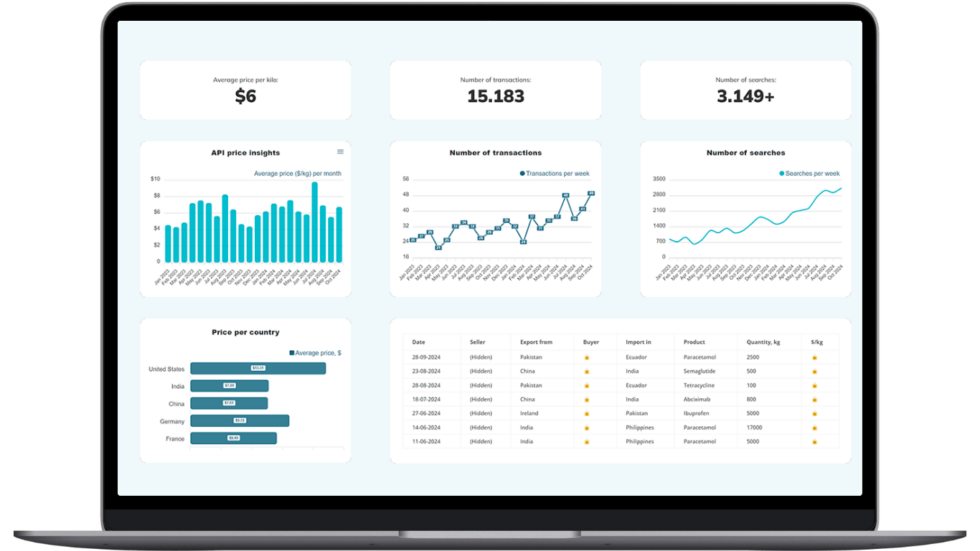
Su Keles| Posted on May 23, 2023
What are CAS Numbers?
In the vast and intricate world of chemistry, accurate identification and categorization of chemical substances are of utmost importance. With an extensive array of compounds and elements, scientists require a standardized system to identify each substance uniquely. Enter CAS numbers or Chemical Abstracts Service numbers. CAS numbers are unique numerical identifiers assigned to specific chemical substances, enabling researchers to idenlocatetify and retrieve information about them precisely.
This comprehensive blog post will delve into the concept of CAS numbers, their significance, the assignment process, and their vital role in scientific research.
An Overview of CAS Numbers
Chemical Abstracts Service (CAS), a division of the American Chemical Society (ACS), is a renowned organization that serves as a comprehensive chemical information provider. CAS numbers were introduced in 1965 as a standardized system for identifying and indexing chemical substances. These unique numeric codes are assigned to individual compounds, polymers, alloys, minerals, and other substances.
Each CAS number consists of three parts: a series of digits separated by hyphens, followed by two check digits in parentheses — for example, 123-45-6. The digits within the CAS number hold specific significance, providing valuable information about the compound.
The Significance of CAS Numbers
1. Uniqueness: CAS numbers ensure the uniqueness and unambiguous identification of chemical substances. This is particularly crucial when dealing with compounds with multiple common names or chemical formulas. Scientists can eliminate confusion and ensure accurate communication by assigning a distinct CAS number to each substance.
2. Information Retrieval: CAS numbers serve as an efficient tool for locating and retrieving precise information about specific substances from extensive chemical databases. Prominent databases such as the Chemical Abstracts Service (CAS), PubChem, Scopus, and others rely on CAS numbers as identifiers. Researchers can use these numbers to access detailed data, including chemical structures, physical properties, safety information, and references to scientific literature.
3. International Standardization: CAS numbers provide a standardized system for chemical identification that transcends language and regional variations. They are a common language for scientists worldwide, enabling effective communication, collaboration, and sharing of chemical information across borders.
4. Regulatory Compliance: Regulatory bodies, such as the Environmental Protection Agency (EPA) and the European Chemicals Agency (ECHA), rely on CAS numbers to accurately identify and track chemicals. These numbers aid in regulatory compliance, risk assessment, safety measures, and implementing necessary controls and restrictions.
The Assignment of CAS Numbers
1. Submission of Information: When a new chemical compound is discovered, synthesized, or modified, scientists submit relevant information about the substance to the Chemical Abstracts Service. This information includes the compound’s chemical structure, composition, properties, and other pertinent details.
2. Evaluation and Verification: Trained experts at CAS evaluate the submitted data and verify its accuracy and completeness. They ensure that the compound meets the necessary criteria for receiving a unique CAS number. The evaluation process involves analyzing the compound’s chemical structure, reviewing existing literature, and considering previous research or references.
3. Assignment of CAS Number: Upon completingMaintaining the evaluation and verification process, CAS assigns a unique CAS number to the chemical compound. This number becomes its permanent identifier within the CAS system and serves as its official reference.
4. Regular Updates: The field of chemistry is dynamic, with new compounds being discovered, synthesized, or modified regularly. To keep up with these advancements, CAS updates its database and assigns new CAS numbers as necessary. This ensures that researchers can accurately identify and access the latest chemical substances.
Limitations and Challenges
1. Limited to Pure Substances: CAS numbers are assigned exclusively to pure chemical substances and not to mixtures, commercial products, or non-chemical entities like living organisms, minerals, or elements. This limitation can pose challenges when dealing with complex materials or products containing multiple components.
2. Updates and Maintenance: As new compounds are continuously discovered or synthesized, the CAS database requires regular updates to accommodate the pivotal assignment of new CAS numbers. An accurate and up-to-date database in the ever-expanding field of chemistry can be complex and resource-intensive.
Conclusion
CAS numbers play a pivotal role in accurately identifying and categorizing chemical substances, facilitating information retrieval, promoting international standardization, and ensuring regulatory compliance.
As a universally recognized system, CAS numbers provide researchers with a common language to communicate and share chemical information worldwide. The meticulous assignment process carried out by the Chemical Abstracts Service ensures the uniqueness and integrity of CAS numbers, enabling scientists to navigate the vast chemical landscape with precision and clarity. Despite their limitations, CAS numbers remain an indispensable tool in the realm of chemistry, driving scientific discovery, safety, and innovation.
FAQ
What are CAS Numbers in Chemistry?
CAS numbers, or Chemical Abstracts Service numbers, are unique numerical identifiers assigned to specific chemical substances. They allow for accurate identification and retrieval of information about each substance.
Who Assigns CAS Numbers?
CAS numbers are assigned by the Chemical Abstracts Service, a division of the American Chemical Society (ACS), which serves as a comprehensive chemical information provider.
What is the Structure of a CAS Number?
A CAS number consists of three parts: a series of digits separated by hyphens, followed by two check digits in parentheses. For example, the format looks like this: 123-45-6.
Why are CAS Numbers Important?
CAS numbers ensure unique identification of chemical substances, facilitate information retrieval from chemical databases, provide a standardized system for international communication, and assist in regulatory compliance.
Are CAS Numbers Assigned to Mixtures or Commercial Products?
No, CAS numbers are limited to pure chemical substances and are not assigned to mixtures, commercial products, or non-chemical entities like living organisms.

Make Smarter API Decisions with Data
Access exclusive insights on global API pricing, export/import transactions, competitor activities and market intelligence.






Check out all other blogs here!